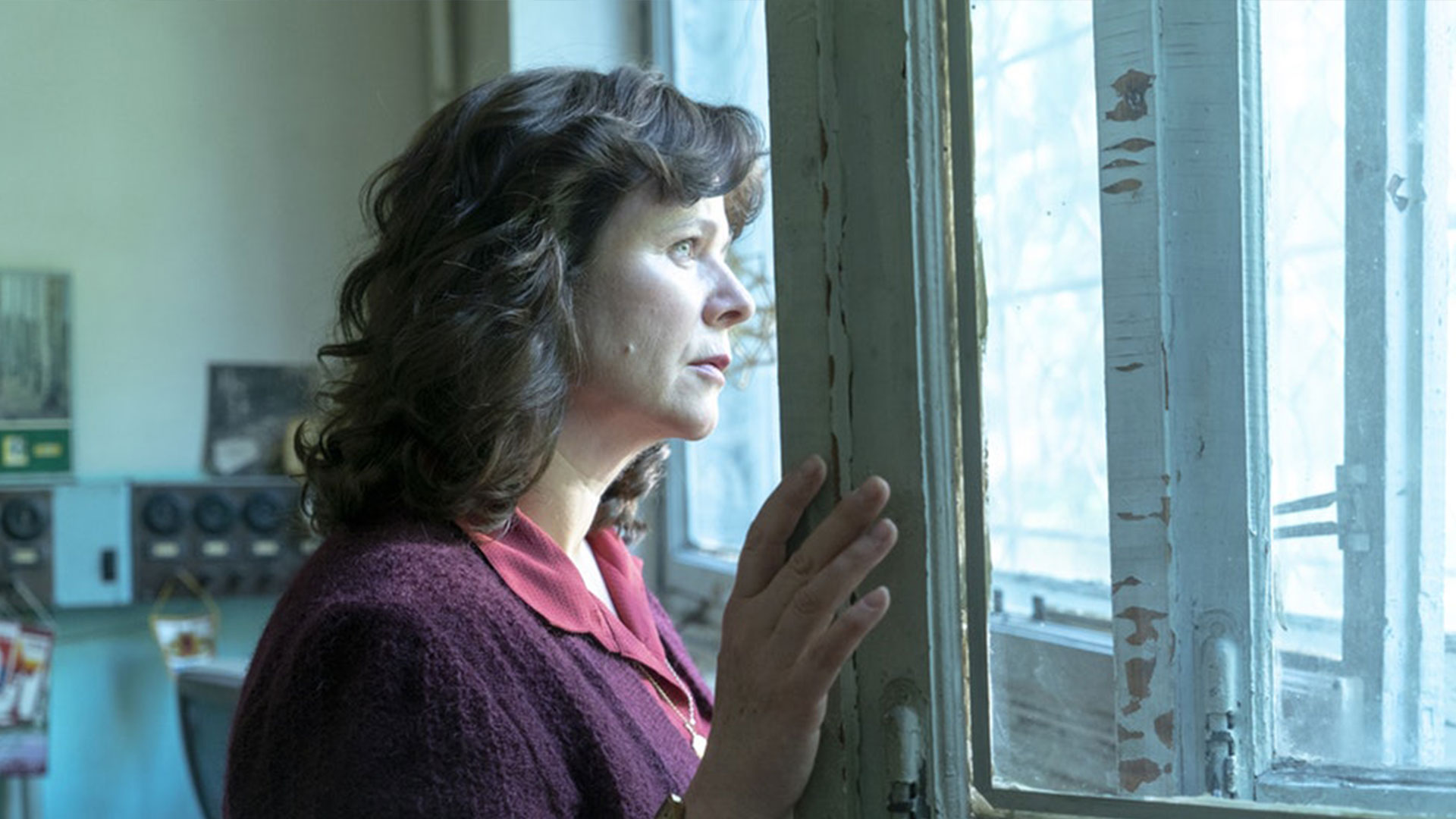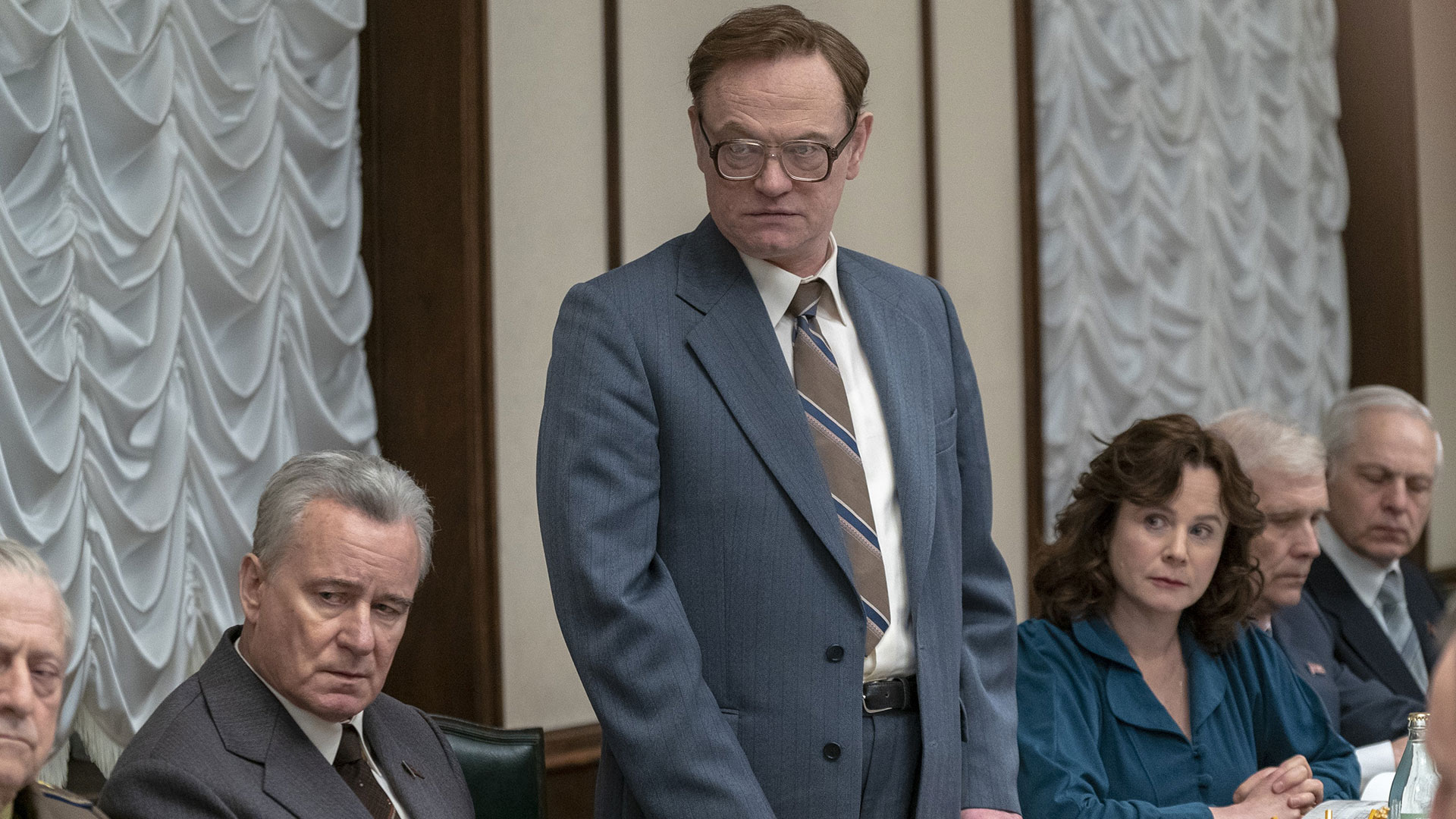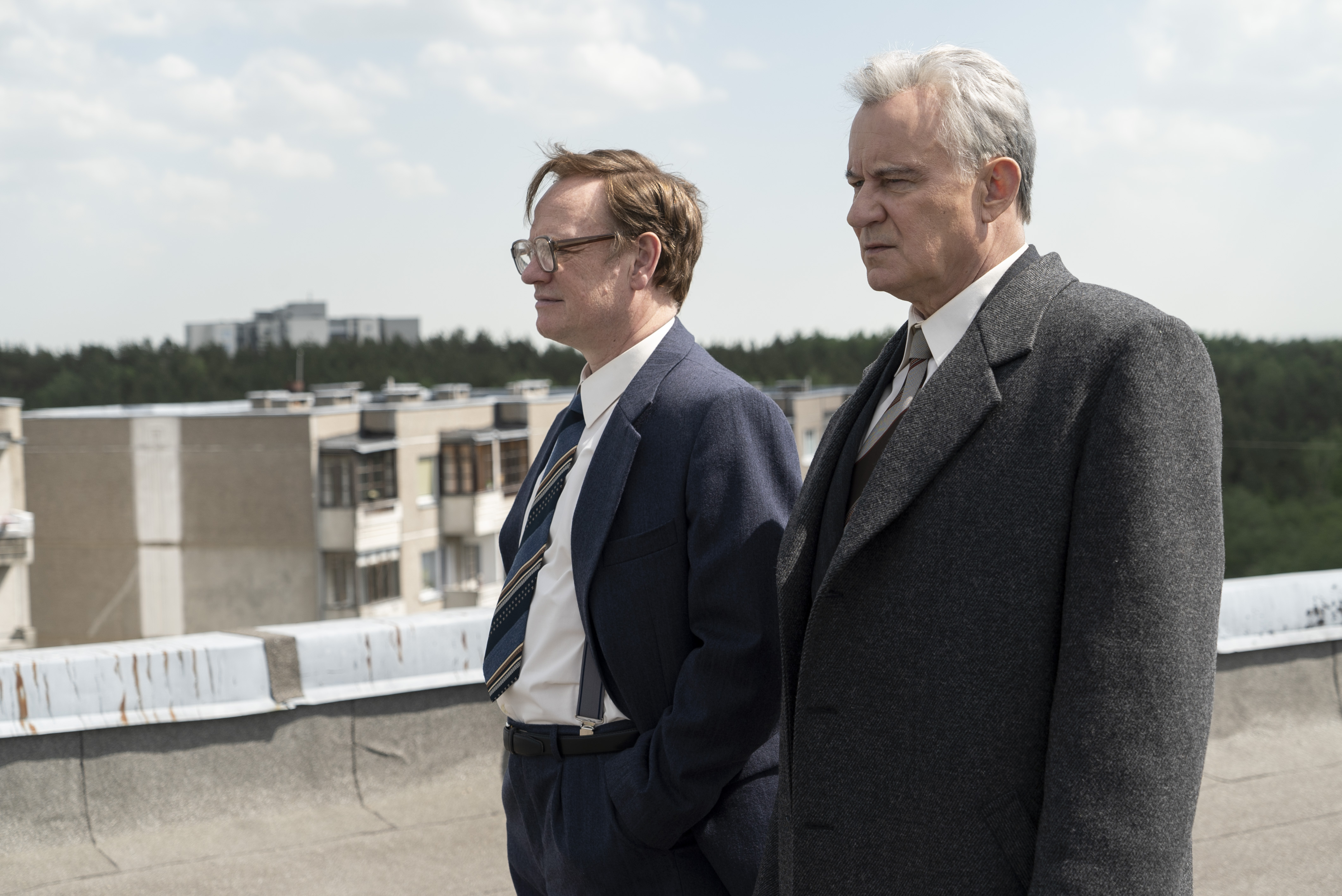GamesRadar+ Verdict
With award-worthy writing, sensational performances, a hellish soundscape and beautifully stark design, it not only succeeds in telling Chernobyl's story; it triumphs.
Why you can trust GamesRadar+
Arriving with none of the fanfare of some other 2019 HBO TV shows, miniseries Chernobyl turned into a television event almost overnight. And it did so not on the strength of a celebrity cast, high-profile showrunners or oversized set pieces, but because here we might, quite simply, have the greatest TV drama of this decade.
Chronicling the real-life events of the fateful Chernobyl disaster in April 1986, the unfolding of this terrible tragedy is told in five tightly knit, deliberately paced and flawlessly executed chapters.
Of course, while the nuclear meltdown at Chernobyl is a matter of historical record, it should go without saying that this review will contain spoilers regarding the show’s plot, and the level of its adherence and deviation from true events.
Opening in direct and deliberate contravention to most programmes that chronicle a dramatic spectacle, Chernobyl starts with a sickly Jared Harris speaking into a tape recorder before hanging himself. Yeah, it’s that sort of show.
Even the disaster itself, when first witnessed, is only seen through a distant room window, and the room’s occupant doesn’t even notice it. We are then thrown in media res inside the control room of Reactor 4, the one that has just exploded, but even there, the gravity of the situation doesn’t seem apparent. We see men in denial about the terror they have unleashed, the tragedy that is unfolding. When faced with the reality of it, the people in charge either don’t register it, or simply decide to lie.
Lies, lies, lies

And it is this theme that continues to permeate the five hour-long episodes to come. Plant operators and officials make up lies to make themselves look better, denying the reality of what’s happening even as they retch and spew bile onto their desks as they succumb to radiation poisoning. Firefighters are lied to as they flock onto the scene and handle the deadly graphite from the core strewn across the scene with their bare hands. Politicians construct bigger lies to keep its population and the world at large in the dark about the terrifying scale of the disaster.
At the heart of unravelling these lies is Jared Harris’ atomic energy expert, Dr Valery Legasov (Jared Harris). Legasov, summoned by Soviet Central Committee member Boris Scherbina (Stellan Skarsgård) to investigate the incident and coordinate the local response, quickly sees that not much adds up in the official version of events, and is soon helped by the driven Dr Ulana Khomyuk (Emily Watson) in trying to uncover the truth while saving the plant – and by extension, the world – from an even bigger disaster.
While multiple strands follow several different characters through some or all of the episode, it’s those three characters who are the beating heart of Chernobyl, and that’s in no small part thanks to the performances of Harris, Skarsgård and Watson. They are all, in a word, sensational.
Jared Harris is an acting juggernaut

In his portrayal of the understated but increasingly pained and desperate Legasov, Harris gives a performance that may well come to define his career. In the common consciousness there will be pre-Chernobyl Jared Harris, respected character actor and dimension-hopping terrorist in Fringe, and there is post-Chernobyl Jared Harris, one of the finest damn actors on the face of this planet. Of course, he has been exactly that for a long time, but here he finally gets to show us. In Harris’ hands, his quiet academic not only navigates the audience through an intricate tapestry of a story, but has us genuinely feeling the fear, the tension, the frustration and the moral conflict he himself faces on his journey. Just give him the Golden Globe already.
Skarsgård may be best known to mainstream viewers as the eccentric Dr Selvig in Marvel’s Thor films, but it is here where an actor of his calibre truly belongs. His Scherbina appears a career politician at the beginning – an apparatnik – dedicated to the Party above anything else, but as he is immersed into the unsavoury truth of Chernobyl, the disaster, the response and his superiors’ intransigence, he becomes increasingly embittered by the situation he finds himself in.

The dynamic between Harris and Skarsgård is electric. The play off each other’s plentiful static energy, there’s collaboration, conflict and even the occasional light moment of wit between them, which offers essential breathing between the oppressive tension of the show. We start to care for both of them, and deeply so, which makes their eventual fate even harder for us to bear than it would have in lesser hands than theirs. Somewhere in the multiverse, there is a slapstick buddy cop show starring these two, and it is as hilarious as Chernobyl is heart-wrenching.
And as she has done so many times throughout her illustrious career, Emily Watson shines in a role that could so easily have become a rote instrument for various plot devices. Her Khomyuk, a driven scientist in relentless pursuit of the truth, is the only fictional character of the main cast, as she is amalgamated from a group of real-life scientists who aided Legasov and Scherbina following the disaster. Still, she slots well into the narrative, even as her story runs parallel to the main plot for much of the series, often used to illustrate the horrors of the aftermath, the power of the KGB or simply representing us viewers as we ask, “what the hell happened here?”
While spectacle is substituted for airtight narrative, there are certainly plenty of breathtaking, heart-pounding moments of excitement throughout the series, and the gory injury detail is stomach-churningly accurate at times, especially as we follow the unfortunate controllers who went into the exposed reactors and the firefighters who handled radioactive graphite literally disintegrate in hospital. And because the drama is handled so delicately, both by the actors and the writer and director, the agony of these scenes is doubled by the deep empathy we feel for every single character we encounter.
Starkly beautiful design and quietly oppressive soundtrack

Other highlights include the production design, slavishly faithful to historical fact in many ways but still strikingly cinematic, aided by excellent cinematography and editing.
And then there is the music. Hildur Gudnadottir is an up-and-coming composer, having previously impressed with her scores for A Hijacking, Mary Magdalene, Sicario 2: Soldado and Icelandic crime series Trapped, for example. But it here where she comes of age, composing a soundscape that envelops the viewer as much as it supports the drama. Recorded using the sounds made by an actual nuclear plant (a disused one in Lithuania that was used for filming large parts of this series), the music is completely organic to the visuals, elevating an already-great drama to a whole new level. She may have been a protege of the late, great Johann Johannsson (Arrival, The Theory of Everything), but here she stamps her authority as a master of the art herself.
The consistency of performances from the main players to minor characters is a testament to the work of director Johan Renck, who has until now been mainly known as a respected music video and commercial director, and writer/producer Craig Mazin, who has managed to balance adherence to historical fact with an utterly gripping drama. Where it deviates, it does so deliberately, enhancing and tightening the story – we skip the part where the sarcophagus is built around the reactor in late-1986, for example – and focus on the main theme: lies.
Chernobyl is not an indictment of Communism, nor is it a campaign against nuclear power. Instead, it focuses on the common human trait of lying, and how much it costs, not only on the big scale of geopolitics, but even more so on a personal level. And by focusing on the commonly human instead of getting bogged down in politics or tempted by the lure of a central set-piece spectacle, is where Chernobyl stands out. It tells us something, not only about Chernobyl, and it does so in spades, but about us. It may sound pretentious, but this show is anything but.
Erlingur Einarsson is a film reviewer and writer, lover of cinema, television, tractors, and basketball. Erlingur has worked at Future for Plc for five years now, having spent time as the Editor for Photoshop Creative, Operations Editor for Digital Camera World, and Deals Editor for Top Ten Reviews. Erlingur currently serves as the Production Editor for our friends over at Total Film magazine – you should expect to find his byline of film reviews and the hottest of takes.



